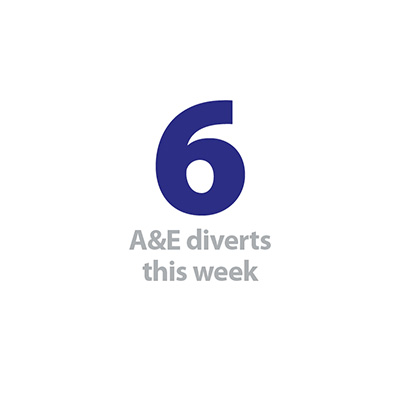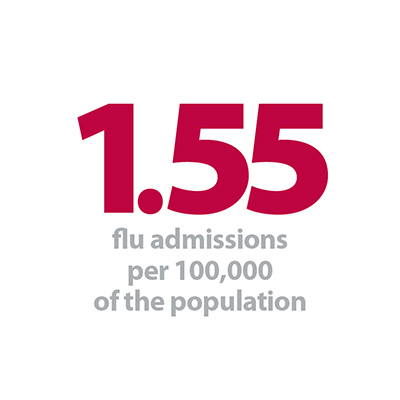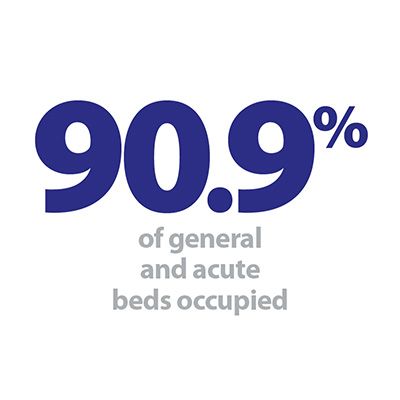


The week before Christmas is a crucial period in the NHS, as trusts work hard to ensure they have enough capacity in place over the holiday period. This is particularly important as other parts of the health care system, such as social care and primary care, will have significantly reduced capacity over this period.
In this week’s winter performance figures, this is borne out by lower bed occupancy rates – by Christmas eve, bed occupancy was down to 84.2% (90.9% average across the week) as staff worked hard to free up as many beds as possible, for example by delaying elective care and operations until the new year. The number of patients with long stays in hospital over 7 days and 21 days also decreased by 7% and 6% respectively on the week before, as staff worked hard to move patients to more appropriate settings before the Christmas bank holiday.
But beneath the figures, pressure is building. The number of patients reporting flu-like symptoms to their GPs has increased again, as did the number of patients having to be hospitalised due to flu symptoms. A continued rise could bring problems as the NHS approaches its traditionally busiest time at the turn of the new year in to January.
As many were heading home for the Christmas break, NHS staff and trusts were pulling out all the stops to ensure that patients could be treated safely over the holiday period.
A NHS Providers spokesperson said: “The NHS winter performance figures for last week reflect the extensive planning ahead of this winter, and the dedicated hard work of NHS staff. There has been an improvement in both bed occupancy levels and ambulance delays, while the number of ambulances diverted to another A&E unit has also fallen significantly this week. We have also seen a reduction in the number of beds closed to norovirus. These efforts will have put the service in stronger position ahead of the holiday period. The health service is now approaching one of its busiest weeks, covering what will be for many the Christmas break. It is important that we recognise and thank NHS staff for their commitment and continued service over the holidays.”